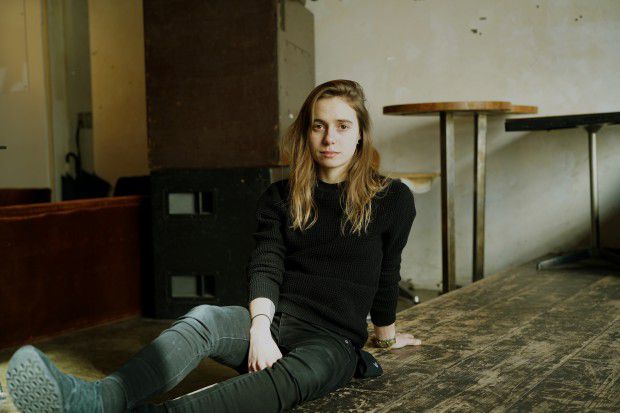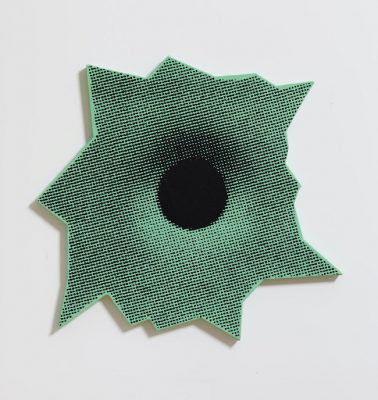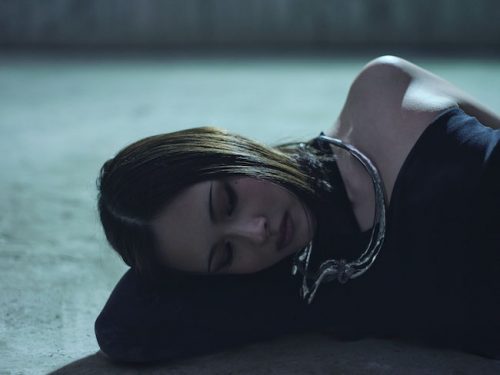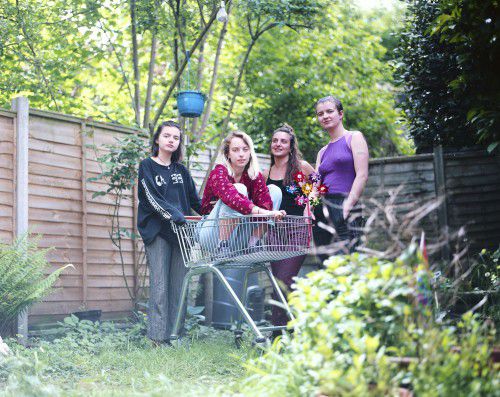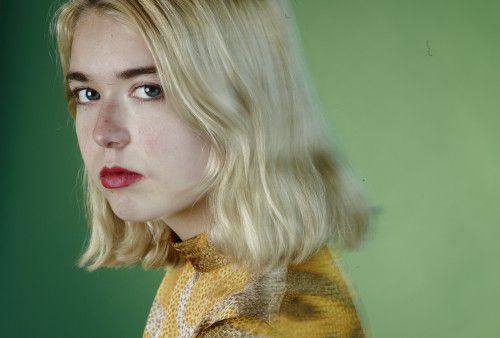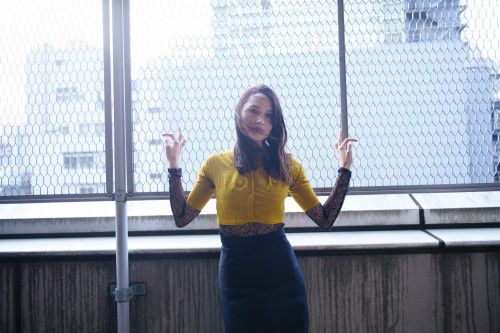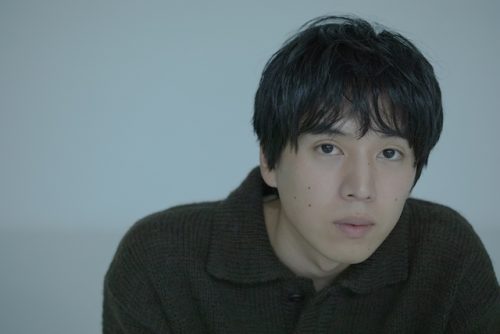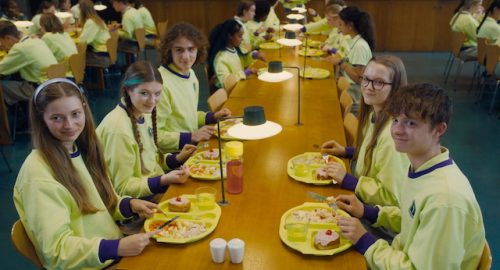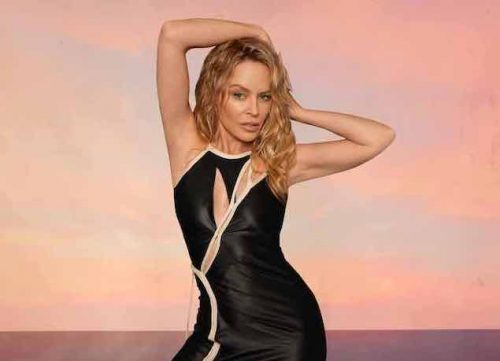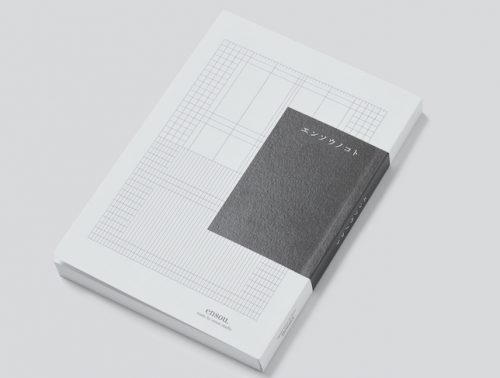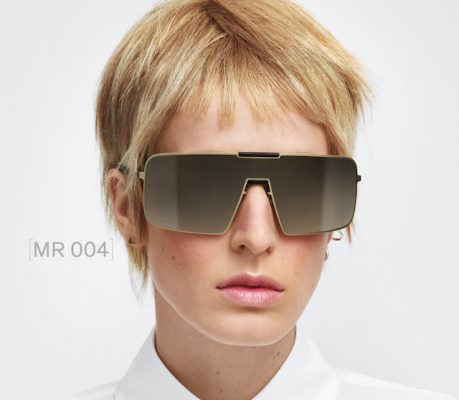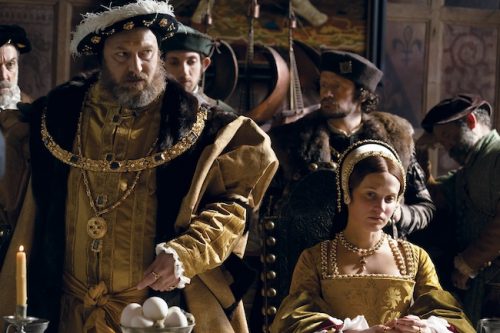昨年リリースされた最新アルバム『ターン・アウト・ザ・ライツ』を携えて、初めての来日公演を行ったジュリアン・ベイカー。自身の複雑なアイデンティティを赤裸々に綴ったストーリーテリングとその確かな表現力により、新たな世代のシンガー・ソングライターとして高い評価を得たベイカーだが、その活動の中心には、彼女が音楽を始めるきっかけとなったパンク体験が深く根を下ろしているとのこと。実際、以前はフォリスターというパンク・バンドを組んでいた時期もあるベイカーだが、今回、彼女に話を聞いてみて、そのあたりの背景をあらためて知ることができたように思う。「激しい怒りやフラストレーションを抱えている人達が人前で感情を爆発させて叫んでいる姿が衝撃で、しかもそれを観客と共有しているということに、ものすごく感動したの」。その衝撃や感動とは、ときに表情をゆがめて切々と歌い上げる彼女の弾き語りからも、同じく受け取ることができるものであるように思う。
——昨年リリースされたアルバム『ターン・アウト・ザ・ライツ』は、高い評価と多くの支持を集めました。その反響の大きさについては、どのように受け止めていますか。
Julien「自分でもびっくりしてる。10代の頃は今よりももっと激しい音楽をやってて、もともとパンク出身だし、音楽で生計を立てるなんて夢みたいな話で。みんな、仕事と掛け持ちでバンドをやっているのが当たり前って世界で生きていたから。これだけたくさんの人から反応が返ってくるなんて驚いているし、プレッシャーも大きいけど、感謝の気持ちを忘れずに、自分が恵まれている立場にいることを理解して、与えられたチャンスを活かして、これからもミュージシャンとして成長していきたい。うん、本当に……自分でも受け止めきれないくらいたくさんの思いが返ってきて。それに潰されないように、自分の中でうまくバランスを取りながらやっていきたい」
——楽曲の背景にあるあなた自身の実体験やアイデンティティに注目が注がれがちですが、そこで歌われている葛藤や痛み、喪失感は、どれも普遍的なものだと思います。だからこそ、あなたの音楽はあれだけの共感を得たのだと思いますが、いかがですか。
Julien「ライヴの後でお客さんと話をしていると、みんな私の歌を自分自身の人生に重ね合わせて聴いてくれているのね。そこが面白いなあと思うし、私が目指しているところでもある。聴いてくれる人に、自分も同じだし、大丈夫、理解されたんだって思ってほしい。だから、ライヴとかでみんなが私のことよりも、自分自身について話してくれるのがすごく嬉しい。すごくカリスマがあって強烈なキャラクターで、みんながそれに惹かれてファンになるってパターンもあるけど、私自身は昔から好きなアーティストの曲に自分を重ね合わせる聴き方をしてきたから、音楽を通じて、自分の感情をみんなと共有することで繋がっていきたいし、私の歌に自分の経験を重ね合わせてほしい。実際、そういうアルバムになっているってことよね」
——自分が音楽を作ることで共感してもらいたい、誰かと繋がりたいという思いは、最初に曲を書き始めたときから思ってたこと?
Julien「そうね。今回のアルバムでは、意識していたと思う。子供の頃から、エモーショナルで感情の激しい音楽にずっと惹かれていたし、それが無意識のうちに出ているのもあるけど、今回のアルバムではそこを意識的に突きつめてみているというか。あのアルバムの曲って、全部が自分中心じゃなくて、自分とか自分のまわりの友達や恋人についても書いているの。ただ、友達や恋人が経験していることを曲にして、私自身がシェアすることで、私の音楽を聴いてくれる人にも曲を通じて同じような感情を追体験してもらえるような気がして。あるいは、私がそういう感情を赤裸々に表現することで、リスナーの人達も、人には言えない自分の抱えている問題だとか悲しみを、否定したり恥ずかしがったりしなくていいんだっていう風に思ってほしいの」
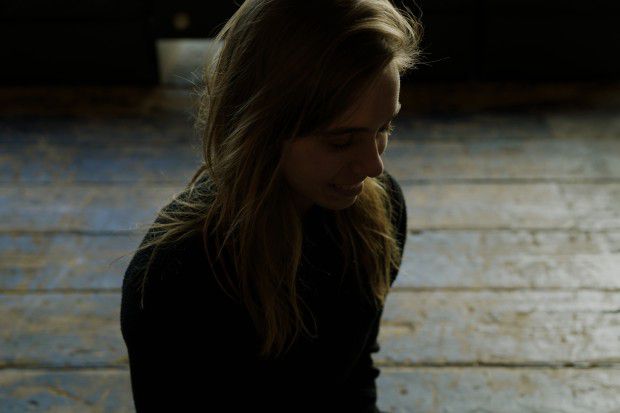
——2年前の1stアルバム『スプレインド・アンクル』は、自分自身の内面を掘り下げていくような作品でしたが、今回のアルバムは、他者の目を通して自分を描き出していく作品であるように感じました。それは意識的な変化だったんですか。
Julien「今回のアルバムを書いているとき、自分でも色んな変化を経験していて……今後アーティストとして活動していく上で、自分の頭の中で繰り返し考えていることや感じていることだけをただ吐き出すだけでいいのか、今みたいにずっと自分中心で同じ思考回路の上をただグルグル廻っているだけでいいのか、とか考えるようになって。自分はアーティストとして恵まれた立場にいるわけで、ただ自分のことばかり歌うだけじゃなくて、もっと意義のある表現があるんじゃないかって」
——ええ。
Julien「自分がこうしてアーティストになったことで、エゴが肥大化すると思ったら、私はむしろ小さくなっちゃったのね。もちろん、私も1人の人間で、普通に自分個人の感情ってものを持っている。ただ、前のアルバムの曲を作っていた頃は、ずっとナッシュビル1カ所で生活してて、親しい友人や仲間に囲まれて普通に日常生活を送っていたのが、今は毎日色んな街を飛びまわって歌うってことを、かれこれ3年ぐらい続けているわけでしょ? その過程で色んな出会いがあったし、その人達の人生のストーリーについても知りたいと思ったの。その人達の抱えている痛みや苦しみについてもっとよく理解したいと思うようになる中で、自分の個人的な悩みを歌っているだけで本当にいいのかな?って思うようになったの。アーティストとして成長していくためにも、もうちょっと自分を広げていってもいいんじゃないかって。ただ自分の感情に浸るだけじゃなくて、今はもっと広い世界に向けて開けてる感じね。ただ自分が悲しいから、ロマンティックな気分だから曲を書くんじゃなくて、もっと大きな意味を持つようになったの」
——アーティストとしての自覚や責任感が生まれた、みたいな?
Julien「まさにそう」
——そうした意識の芽生えという点で、あなたにとってロールモデル的なシンガーやアーティストとなると、誰になりますか。
Julien「女性アーティストにインスパイアされることが多いかな。自分と同世代のアーティストにすごく刺激を受けている。私が子供の頃はロールモデルになるような女性アーティストって、今よりもずっと少なかったし……ただ、女性でもパンクができるんだって最初に思わせてくれたのは、パラモアのヘイリー・ウィリアムスで、一番影響を受けてると思う」
——パラモアの新作、すごくよかったですよね。
Julien「うん、ほんっとに最高!! ヘイリーは表現者としてものすごくラディカルだし、自分の信仰からパーソナルな感情まですべてを音楽にさらけ出していたでしょう? それにインタビューなんかでも一切取り繕うことなく、ありのままの自分を出している。そこにすごくインスパイアされたのね。女の子でもバンドをやって、ヘヴィな音をやってもいいんだって思えるようになったきっかけは間違いなくヘイリーよ。今の活動をする前は、もっとヘヴィなバンドでギターを弾いてたからね。あとは最近のバンドで、ハーフウェイとか、ミツキとか……ミツキは好き? もう、最高だよね!! ライヴでもソーシャルメディアでも、すべてが彼女の政治的なメッセージを伝えるための場になっていて。でも、それを誤解を生じさせるような形じゃなくて、アートと政治と社会はバラバラのものじゃなくて、1つに繋がってるんだってことを体現している。政治はその人の考え方そのものだし、アートとは切っても切り離せない関係だから。あとはソングライターのメアリー・ランバードとか、異色の存在感を放っていて。今言った女性アーティストはみんな愛や恋人について歌っていて、決してウディ・ガズリーみたいに社会に真っ向からは歯向かうスタイルではないけど(笑)、アーティストとして自分を表現することで、世界にポジティヴな変化をもたらしているように思うから」
——たとえば、ティーンだった思春期の頃の自分に寄り添ってくれた、それこそ「自分を重ね合わせる聴き方」をしていたアーティストというと、誰になりますか。
Julien「やっぱりパラモアが一番かな。あとマンチェスター・オーケストラという自分と同じアメリカ南部出身のバンドにはものすごく影響を受ける。ただ、10代の頃に聴いてたのはセレモニーとかアンダーオースとかパンク・バンドが中心なの。初めてパンクのライヴに行ったときに、激しい怒りやフラストレーションを抱えている人達が人前で感情を爆発させて叫んでいる姿が衝撃で、しかもそれを観客と共有していることに、ものすごく感動したの。だから、女性でそういう表現をしている人にすごく影響を受けてる」
——先ほども話に出ましたが、あなた自身も以前はパンク・バンドで活動されていましたよね。
Julien「そうね。前のアルバムを出した頃はパンク・バンドとしても活動していたし。ただ、バンドでは合わない曲が溜まってたんで、バンドとは別に自分を表現するための場を探した結果、できたのがあのアルバムなの。自分ではバンドをメインに考えてたから、こうしてソロとして注目されることになるとは思ってもみなかったけど(笑)。ただ、たしかに音楽性こそ違うけど、激しい感情とか、人間の弱さだったり儚さだったり、根底にあるものは同じっていう感じがする」
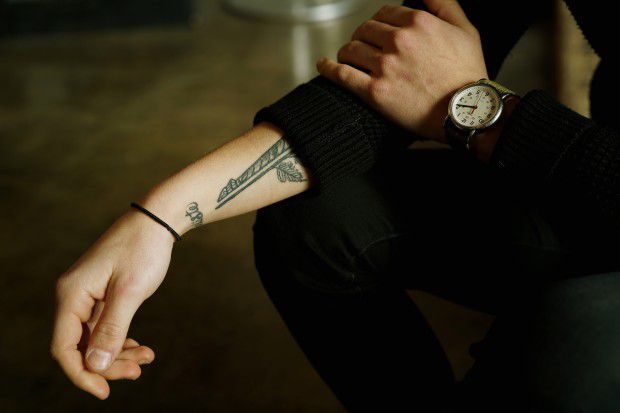
——もし機会があれば、またバンドもやってみたい?
Julien「うん、バンドみたいな表現もしてみたいな。友達とかはまだそっち系の音楽をやってるし、今後そういう機会があるといいな」
——あなたの音楽を聴いていると、自分自身を追い詰めるようにして曲を書いている姿が想像されます。どういうときに曲を書きたい、という感情が湧き上がってくるんですか。
Julien「何だろう……本当のところ、こうして普段の日常の中に、何か美しい詩のような、生きている意味を感じさせるような瞬間を感じるのね。だから、できるだけクリアな状態で、自分のまわりで起きているすべてのことに意識を集中させていきたいの。電車に乗ってるときでも、誰かと会話してるときでも、そこで見かけた人とか風景や会話の断片からインスピレーションを受けて、それをスナップ写真みたいに切り取って曲の形にしているのね。ただ人間が人間として普通に生きているだけで、そこにはドラマがあってエモーションがあるわけじゃない? それを意識して瞬間的に捉えることで、そこから何か美しいものを生み出していくっていう。人とケンカしたり、悲しいことも含まれるから、必ずしもすべてが美しいわけじゃないけど……ただ、そこには確実にアートの種になるものが存在しているのよ。それを音楽を通して引き出してあげたいの」
——成功したことで周囲の環境が変わった結果、自分の音楽や日常が変化してしまうのでは、という不安はない?
Julien「もうすでに変化してるし、今は1年の9ヶ月はツアー生活だから、それまでの淡々とした日常生活がどれだけ大切だったのかを思い知らされている。それから、大切な人がいることの有りがたさとか、その人達の人生にとってもっと大きな存在でいたいという気持ちが強くなってる。家や学校で毎日会えるような気楽な関係じゃなくて、次に会えるのは2ヶ月後かもしれないけど、だったらもっと目の前にいる人を大事にしないとって。大切な人達を今はもっと大切にするようになったし、それを相手にきちんと伝える努力をするようになったから」
——アルバムの最後の曲“Claws In Your Back”の「聖人によく似た悪魔と共存する方法を学んだほうがいいみたい/2人の間だけだったらどちらも同じだと思う」という歌詞が印象的だったのですが、あれはどういう境地から生まれたものなんですか。
Julien「英語で“悪魔と共存する”という言い方をするんだけど、みんな普段は他人には見せない部分を抱えてるじゃない? そういう自分の欠点とか抱えている問題やネガティヴな部分も、本当はポジティヴな部分と同じで、大切な自分自身の一部なのよ。みんな他人にはポジティヴな部分だけを見せて、それを元に自分のキャラクターを作ったり、ネガティヴな部分を隠そうとするでしょう? ただ、そうしたネガティヴな部分も含めて、自分にもっと優しくしてあげたいし、受け入れていきたいの。だから、自分の中の悪魔と天使とか、そうやって単純に区別するものじゃなくて、全部ひっくるめた上で自分自身なのよ。要するに、そうした自分の部分とどうやって向き合っていくかなのよね。自分の中のネガティヴな面を汚くて醜いものとして扱うのか、それとも正直に自分の弱さを認めてさらけ出すことで力に変えていくのか、っていう」
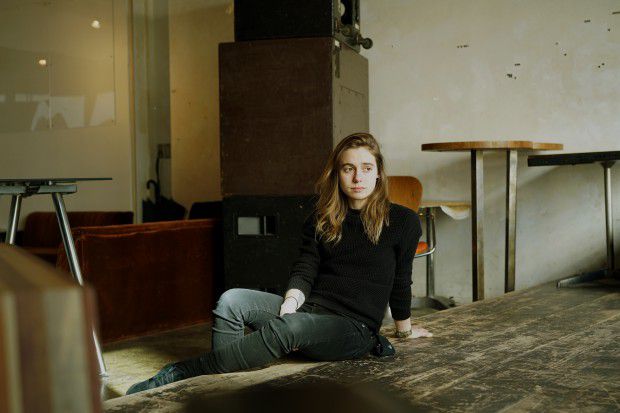
——You might have been asked this many times but your recent album was highly claimed and a lot of people like to listen to it and there were big reactions, so how do you feel about that?
It’s kind of overwhelming you know? Like um, when I was a teenager making music I was in more of an aggressive band like a punk band. The assumption I think you make when you grew up playing that music is that there’s a certain point where that’s as successful as your going to be and very very infrequently or let me say its uncommon that you are able to make music for a living. That’s just not something that happens and you had to have a day job so like for people to respond to music in the way they have is mind blowing for me. And it’s a lot to take in but I think I try to make a practice of having perspective and staying grateful like always remembering to be thankful for the things that I have and to remember what an incredible opportunity and responsibility it is so that I never become entitled you know? So yeah, but it’s a lot to try to balance to it.
——I think that a lot of the attention to your real experience and your identity but also a lot of the universal emotions like the feeling of sadness or depression or feeling like you can’t escape this kind of painful situation and I think that touched a lot of the listeners. Do you agree?
Yeah I mean I think that when I talk to the people at the shows that they relate to me the most is honestly their own life experiences which I think is very interesting but that’s what I want do. Make people feel comfortable and validated and understood, so it makes me happy when people outside of a show come up and talk to me about themselves and not me. Because I think that for some artists or maybe it varies by what type of artist you are but there’s a big emphasis on the persona of the artist and the granger and the performance and I think the way that I always use music in my own life is like I always place myself inside of another persons song, inside of my favorite bands song and then I feel less alone. And so I think that’s something people communicate a lot to me when I get to speak with them and that’s what I intend for the records for the records so that’s good.
——Did you write these songs for the people to feel like they understand your experiences?
I think when well so when I’m starting this record a lot of the songs are about my friends or about relationships instead of just being about me. The soul character they’re more about things I’ve seen other people go through and things I’ve gone through as a partner like inside a romantic relationship or friendship so I hoped that the empathy that I’m just playing for my friends or my family or my partner in that song also creates more understanding communal space so that people feel actively to share themselves as well or they feel that because I’m willing to devolish those personal parts of myself they also can to without fear of being shaped or without fear.
—So writing songs to share that kind of experience it looks『Sprained Ankle』was that something you’ve always done from the beginning or was that something you shaped up in line to develop the process?
I think maybe on this record I, it was a conscious decision. So because the music that I’ve always gravitated towards since I was a child is that kind of emotional dramatic aggressive music but that is a subconscious influence in my song writing but I think it has always been there but with this record I try to be more focused and intentional about it.
——First of all that was a lot about your trans and you expressed how you felt and deep into yourself but on this new record it was more about other people and relationships with others and your kind of seeing things through other peoples eyes. So what triggered that change from the first record to the second record?
Honestly I think, a number of things going on in my personal life while I was writing the record like coming to the terms with if I’m going to be a artist writing about having these kinds of recurring thoughts and recurring issues, is that the image that I want to depict of myself and also why do I feel like I’m revisiting these thoughts all the time and why do I feel the need to consistently express them and if I have this position as an artist, what could I say something more meaningful. I think honestly this experience of becoming a successful musician instead of inflating my ego shrank it, I’m not saying I don’t do deprival things, I’m human but when left my life that was in one city with my ten best friends and then every night play a show at different city for two or almost three years and that so many people I wanted to know what their stories were and what was causing them hurt and causing them pain and that made me think about is it worth it to continue sing about my individual pain or should I try to figure out ways to improve myself and do the hard work in my heart in my mind so that what I’m saying to the strangers that I meet are not self indulgent and that its meaningful it has a purpose and its something larger than just sad songs. Just because sadness is romantic or attractive you know?
——When you were living with your best friends or was that between records?
Well, no I wasn’t literally living with my ten, living in a house with them. I mean I was in a city and that was my one location. I lived in Nashville and I saw the same people everyday and I had my routine I wasn’t in a different city every night.
——Oh sorry.
No, I should have been clear
——And this was when you were making this album right?
No that was before I made the previous one.
——So does that mean you feel more responsible as an artist?
Yeah, I would agree.
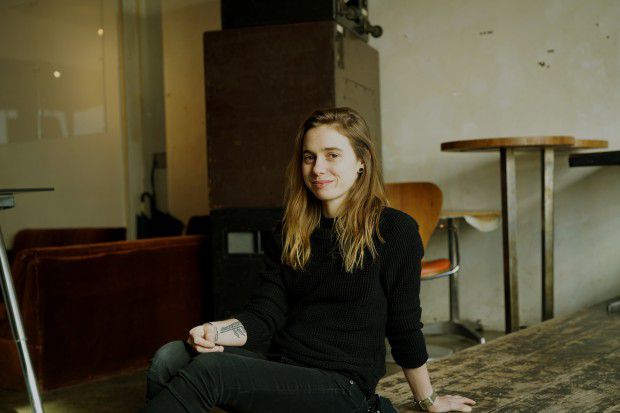
——Do you have any role model as an artist that you look up to or somebody that’s doing similar things?
Yeah, I think there are a lot, especially female musicians. I really look up to Mitski, a lot I love that artist and am trying to think of other artists. Let see.
There’s so many. I recently went on tour with this artist Halfway, I really loved too. And I think that I’m inspired a lot by my peers in the music scene obviously when I was growing up the people that were role models were not really like um you know? So there were female musicians for me that made it okay for me that made it okay for me to be female in the punk world. Like Hayley Williams from Paramore is the biggest deal to me that’s the most enormous influences because there is a person who speaks radically in her music about everything from faith to emotion and also is very open in interviews and stuff about not hiding the reality of human being that she is, and so there’s that influence that has been there since childhood, that’s the whole reason I thought it was possible for me to be a girl in a heavy band. Before I did this I played guitar in a screaming band but then there’s that but then there’s people who are just emerging like this artist Halfway and Mitski is a lot more established. Oh god, she’s incredible! She uses her social media her shows everything is a platform Politics but not in a way that its ill informed, its like artistry and politics and society are not separate things politics are who you are and play into your person hood so you cant separate them at all. Mary Lambert is another one she’s just like a queer lady who is a songwriter and its interesting cause those people are able to sing about love and relationships and they are not making songs that sound like Woody Guthrie dismantle the system but their being as an artist and portray themselves how they carry themselves is an attempt to positively change the society we live in or use it as a tool.
——Do You like Paramore’s new album?
Yeah. So good.
——I think people now are listening to your music and relate to themselves and to your and what your going through. How about when you were growing up? Were there artists that you were listening to that you were able to relate to? You mentioned Paramore?
Paramore was a big one that was a big one. And I think I also listened to a lot this band Manchester Orchestra. They’re also from the south like my area of the United States they were big influence but honestly the music that I listened to as a teenager that made me feel really comforted was bands like Touché Amoré, Ceremony and Underoath or like hardcore bands? I remember the first time I went to a show like that and just feeling like there’s a person on stage that is so frustrated or angry that they just want to scream and now of course now I’ve realized that a lot of both playing it out is emotional but it feels so radical to be able to see someone do that on stage and in public and for it to be a shared experience. That’s why its so incredible having that role model of self expression and also the role model of female musicians was a super important thing and to me right now.
ーーIts quite a big change going onto Solo. What triggered the change?
Well I’m still touring with that band and I put out the first solo record and the only reason I put that out is cause I just had songs that wouldn’t fit the band and I wanted to find a creative place for those and you know that’s a common thing people from bands are in other bands or they have solo projects and I always imaged that the band would stay the main focus and that this would just be a quite release and no one would care about it but that was not the case. But you know I think its interesting cause in a scale of things there is a lot of similarities between the background music and the music that I make now even though the musical styles are very different its still got the same basic foundation of radical formability.
——If you had the opportunity would you like to go back to the punk band?
Yeah, I think that it would be fun in addition to doing this, to be able to have an album and be in that kind of musical style I think. I have a lot of friends that still play in bands like that so I keep hope alive that it will happen again.
——What kind of situations or experiences makes you want to write songs?
Honestly to me there seems to be so much that’s poetic and significant and beautiful about just daily life and so really the way that I write is and the way its inspired just trying to stay aware and be present, be very very present everything is happening around you so, I’m observing something on the train or having a conversation with the person many of the lyrics from the last few records are derived straight from conversations I’ve had with other people. That little bits of pieces of that all take out and make a song because its this snapshot of life and there’s so much that its emotional and provocative and dramatic about just being a human that you just have to be aware and be able to harvest it and recognize it when beautiful or something significant is happening or I guess beautiful is the wrong word because you could also be having an argument with someone or be watching something very sad unfold but being willing to say there’s something artistic in this and pull it out.
–You’ve become very successful as an artist, musician and you said you were very grateful but do you think that change will bring more changes to everyday life or that daily life that your trying to be very aware of?
Oh yeah, well I think it already has just in the way that touring and being gone for nine months of the year. Honestly it makes you more appreciative of the dame, the average and the normal. It also makes you appreciate your loved ones the way that you have to be much more aware and try in specific ways to be present in their life’s because relationships with people that you see at work everyday or school everyday, those come easily but when you love someone and your in different continent from them for two months then that’s when it becomes hard so it makes you have to work extra hard but also I’ve learned to value the things that I love much more and not only be grateful for them but to communicate my gratefulness and my care for those people.
——So this is the last question and he wanted to ask about the last song in the album and the song claws in your back and in the lyrics your talking about living the double so he was wondering was it was something that you didn’t want to, you thought it was a double but you accepted it? So can you explain a little bit about that background?
Sure, so that lyric specifically is about I think we used to expression living with our demons like everyone has their demon skeletons in your closet or whatever, and learning that those things our experience our flaws our problems we give them negatives terms like our demons were reflections but those are the things that make us who we are just like our positive qualities and our positive qualities are the ones that we choose to share in public but we also develop our character in how we deal with our negative qualities and so in the time of my life where I was struggling to come to terms with myself and the problems that I had to be more kinder and loving to myself to get better I think it was important for me to acknowledge that maybe its not so simple as there are bad things about us and there are good things about us, its all just who we are and how we use those tools displays our character and we can choose to view our negative as evil and ugly or we can be honest and vulnerable about them and gives us more power over those things.
photography Satomi Yamauchi
text Junnosuke Amai
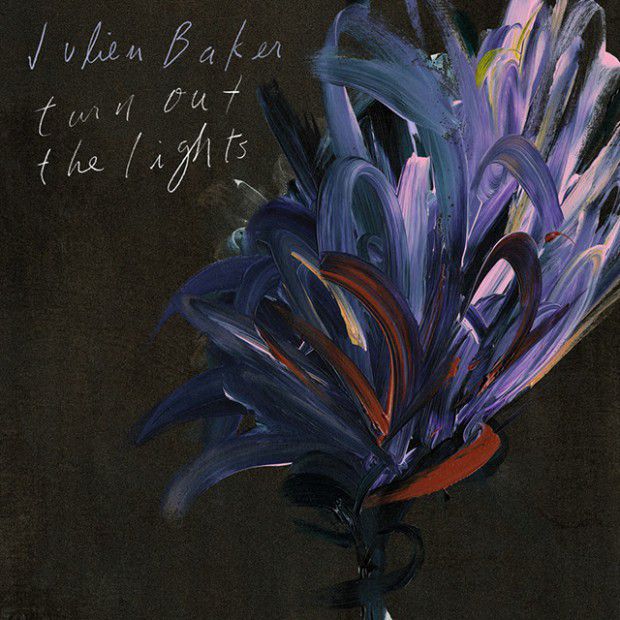
Julien Baker
『Turn Out The Lights』
発売中
(Matador Records/Beat Records)
国内盤特典:ボーナストラック追加収録 / 解説・歌詞対訳付き
beatink:https://www.beatink.com/products/detail.php?product_id=6622
amazon:http://amzn.to/2fXNuml
Tower Records:http://bit.ly/2ijhmu5
HMV:http://bit.ly/2wnDvxJ
iTunes Store:http://apple.co/2vRmbQg
商品ページはこちら:
https://www.beatink.com/products/detail.php?product_id=6622
RACKLISTING
01. Over
02. Appointments
03. Turn Out The Lights
04. Shadowboxing
05. Sour Breath
06. Televangelist
07. Everything That Helps You Sleep
08. Happy To Be Here
09. Hurt Less
10. Even
11. Claws In Your Back
12. Funeral Pyre *Bonus Track for Japan
13. Red Door (Demo) *Bonus Track for Japan
Julien Baker
2015年最も高い評価を集めた作品の一つとされたデビュー作『Sprained Ankle』を、友人と共に若干18歳で作り上げ、希有のソングライターとリリシストとして大注目を集めたジュリアン・ベイカー。女性であること、同性愛者であること、クリスチャンであること、自身のアイデンティティーと壮絶な経験を通して、孤独や自己破壊への衝動、信仰とそこから生まれる葛藤を誠実にドキュメントした内容は、聴く者の心を打ち、その反響は拡がり続け、その年の多くの音楽メディアで年間ベストのリストに選出されるなど賞賛された。今年21歳となったジュリアンは、名門マタドールと契約、待望の2ndアルバム『Turn Out The Lights』が10月27日にリリースされた。2018年1月の初来日公演はソールドアウトとなった。
